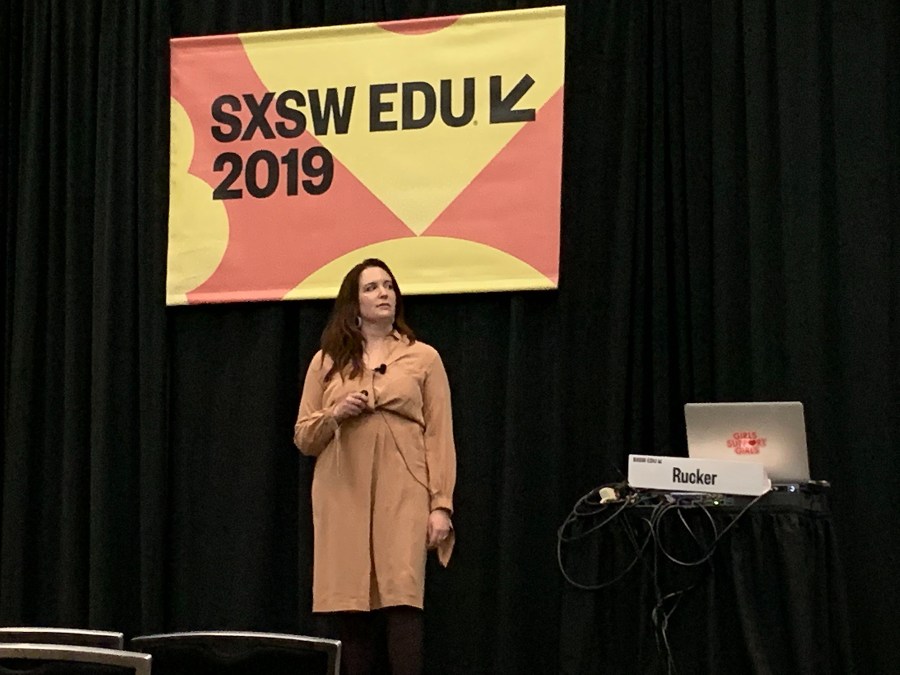‘CodeCrush’ immersion experience builds a Midwest STEM community

National organizations like Girls Who Code have provided STEM education for more 80,000 K-12 girls in the last six years, and now some advocates — like University of Nebraska’s Amanda Rucker — are starting in smaller communities, creating opportunities for students throughout the Midwest.
Rucker, a communications specialist at Nebraska U.’s Omaha campus, is also the director of CodeCrush — a grassroots computer science workshop designed to introduce girls in the Midwest to computer coding and science, technology, engineering, and mathematics education. In six years, Rucker said, more than 200 eighth- and ninth-grade girls have participated in the twice-a-semester workshop at the university, bringing a community together from around the region.
“We wanted to be intentional about the branding,” Rucker told an audience at the South by SouthWest EDU conference in Austin, Texas, this week. “We’re part of a university system, but I didn’t want this to look like another recruiting system for our specific college.”
The region that Rucker is trying to serve — South Dakota, Iowa and Nebraska — she says isn’t a “robust” hub for K-12 computer science education. According to Code.org, neither South Dakota nor Nebraska require high schools to offer computer science courses or provide statewide curriculum standards for the topic. CodeCrush also tries to serve sparsely-populated rural areas where the infrastructure to support computer science in schools might not exist.
The program accepts 32 students and 32 teachers from around Nebraska and the Midwest for each workshop at the Omaha campus. The structure of each three-day workshop is the same, Rucker said, but the classes and sessions are updated each workshop so that girls and teachers are encouraged to attend more than one. It’s also free — teachers receive a $500 stipend for attending, funded by local businesses and government grants.
A typical weekend would see the students take special courses — bioinformatics or mobile app coding, for example — taught in university classrooms, led by the campus’s STEM professors or current student researchers. Teachers can either sit in on those classes or go to sessions designed to increase their comfortability with instructing STEM in their classrooms. At night, girls can tour the offices of companies like Gallup and Flywheel and sit in on special presentations from employees at Google and other tech companies.
The idea is that both students and teachers leave the weekend with the knowledge and means to continue the work that they did on campus.
“We make sure these things don’t require a high-end investment from the student — they’re cloud-based, sometimes they’re unplugged,” Rucker said. “All these different things that they can go home and keep practicing, or even leave our program and practice at night.”
The program appears to be working as more than a quarter of the girls in the first class of participants, launched back in 2013, reported majoring in a STEM field, and some of them even enrolled at the University of Nebraska campus where CodeCrush had brought them.

